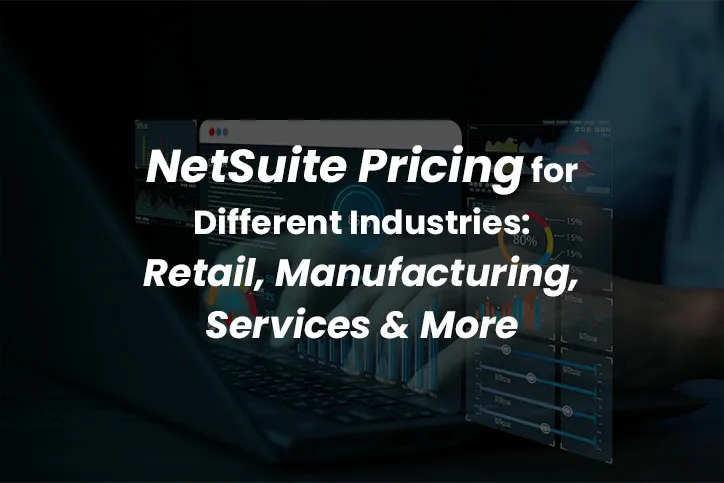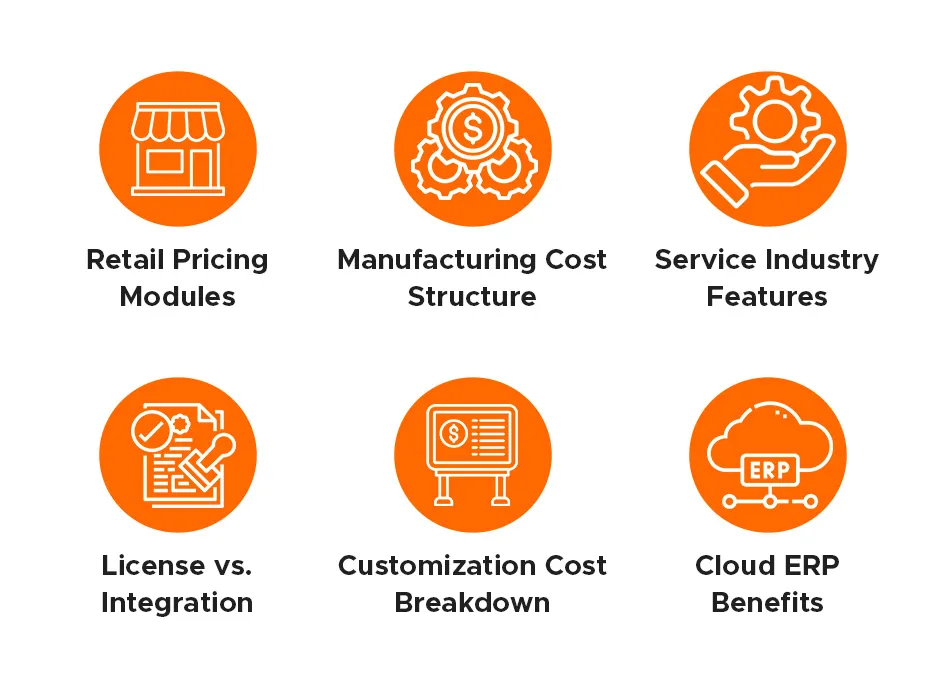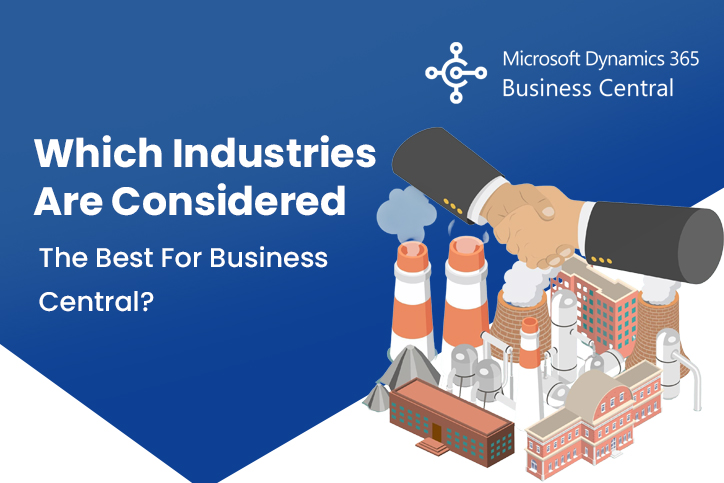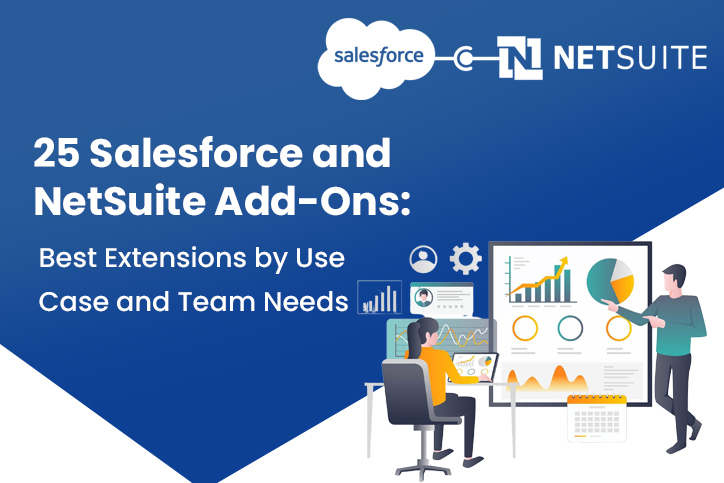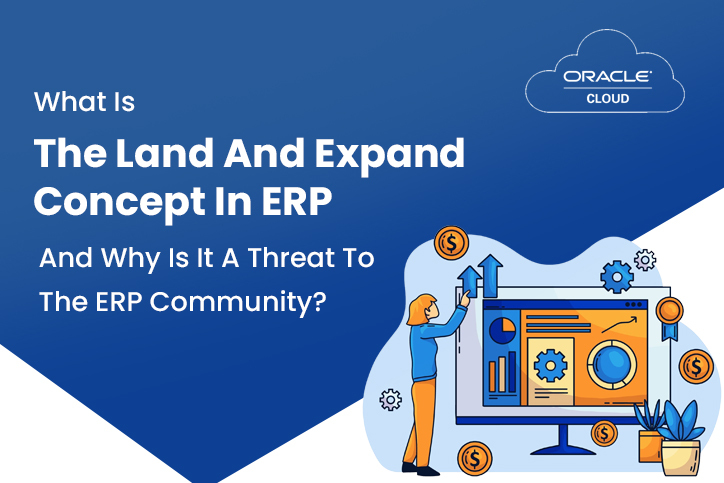When it comes to cloud-based ERP solutions, NetSuite stands out for its scalability, adaptability, and ability to serve diverse industry needs. However, what often puzzles many decision-makers is how NetSuite pricing varies across different sectors like retail, manufacturing, and services. In this blog, we’ll break down how the pricing differs by industry and help you understand what factors influence the NetSuite license cost.
Why Does NetSuite Pricing Varies by Industry?
NetSuite doesn’t offer a one-size-fits-all solution. Instead, it tailors its pricing based on:
- The size and complexity of the business
- Number of users
- Required modules and functionalities
- Industry-specific features and customizations
Let’s dive deeper into what NetSuite pricing for retail, manufacturing, and services really looks like and what you should expect when budgeting for your ERP transformation.
NetSuite Pricing for Retail
Retail businesses operate in a fast-paced environment that requires real-time inventory management, customer engagement, and seamless omnichannel integration. NetSuite’s retail solution includes modules like:
- Point-of-sale (POS) – Netsuite’s Integration with Oracle Micros POS
- Order and inventory management
- Customer Relationship Management (CRM)
- E-commerce integration
Key Cost Drivers:
- Number of SKUs: The more products you handle, the more robust your system needs to be.
- Omnichannel Integration: Integration with e-commerce platforms like Shopify or Magento adds cost.
- User Access: The more employees needing access, the higher the license fees.
Typical Pricing Range:
While prices can vary, NetSuite pricing for retail typically ranges from $999/month to $3,000/month depending on the number of users and modules required.
NetSuite Pricing for Manufacturing
Manufacturers need ERP systems that can handle complex supply chains, bills of materials, production scheduling, and compliance tracking. NetSuite’s manufacturing edition includes:
- Advanced Manufacturing Module
- Supply Chain Management
- Work Orders and Assemblies
- Demand Planning
Key Cost Drivers:
- Production Volume: Higher production rates demand more automation and advanced modules.
- Complex BOMs: Complicated bills of materials increase customization and costs.
- Integration Needs: Integration with tools like CAD or MES adds to the price.
Typical Pricing Range:
NetSuite pricing for manufacturing usually falls between $1,200/month to $4,000/month, based on user count and depth of customization.
NetSuite Pricing for Services
Service-based organizations like consulting firms, marketing agencies, or IT companies rely on project management, resource planning, and financial tracking. NetSuite offers dedicated features for:
- Project Management
- Time & Expense Tracking
- Resource Allocation
- Billing & Revenue Recognition
Key Cost Drivers:
- Number of Projects: More simultaneous projects mean greater data processing needs.
- Billing Complexity: Milestone or time-based billing models require more robust functionality.
- Integration Requirements: Connection with third-party project management tools can increase implementation cost.
Typical Pricing Range:
NetSuite pricing for services is generally between $900/month to $2,500/month, depending on the number of users and project scale.
Factors That Influence NetSuite License Cost
The NetSuite license cost is influenced by several standard and industry-specific factors:
1. Number of Users:
NetSuite’s pricing structure is subscription-based and user-tiered. Each type of user (full user, employee user, etc.) is charged differently.
2. Modules Required:
Each module adds functionality—and cost. Some commonly used ones across industries include:
- Financial Management
- CRM
- Inventory Management
- E-commerce
3. Implementation Fees:
Besides the annual license, implementation involves System Study, configuration, testing, and training. These are usually charged as a fixed scope project or Time & Material basis.
4. NetSuite Integration Services:
For many companies, NetSuite needs to connect with external systems (e.g.,online Portals, e-commerce platforms, Payment Gateways, Banks supply chain tools). The cost of NetSuite integration services varies based on the complexity of the connections needed.
Cost Comparison Table by Industry
| Industry | Monthly Cost Range | Key Modules | Customization Level |
|---|---|---|---|
| Retail | $999 – $3,000 | POS, CRM, Inventory, E-Commerce | Medium to High |
| Manufacturing | $1,200 – $4,000 | BOM, SCM, Production Planning | High |
| Services | $900 – $2,500 | Project Mgmt, Time Tracking, Billing | Medium |
How to Estimate Your NetSuite Costs?
When evaluating NetSuite, always:
- Identify your must-have modules
- Forecast your user growth for the next 3-5 years
- Consider third-party integrations
- Request quotes from multiple NetSuite partners for transparency
It’s a good idea to create a NetSuite pricing checklist based on your business model and growth trajectory.
Getting the Most Value from Your NetSuite Investment
Regardless of the industry, maximizing ROI from NetSuite depends on:
- Choosing only essential modules
- Training your team effectively
- Scheduling regular system audits
- Using reliable NetSuite integration services for seamless workflows
Remember, the total cost isn’t just about the software—it’s about implementation, usability, and long-term scalability.
What’s Right for You?
Whether you’re in retail, manufacturing, or services, understanding the nuances of NetSuite pricing is crucial. While it may seem expensive upfront, the system’s scalability and long-term benefits often justify the investment.
If you’re serious about adopting NetSuite, ensure you:
- Know what features are must-haves
- Compare pricing quotes
- Understand the full scope of the NetSuite license cost
With a clear understanding of costs and expectations, you’ll be better positioned to leverage NetSuite for operational efficiency and business growth.
For tailored insights and professional support, SoftArt is here to help you navigate your NetSuite journey.
Ready to Move Forward?
Now that you’ve got a complete breakdown of NetSuite pricing for retail, manufacturing, and services, the next step is to evaluate your business needs and plan accordingly. If you’re looking for a partner to simplify your ERP transition with accurate pricing estimates, trusted implementation, and smooth NetSuite integration services, consider reaching out to experts with years of real-world experience.
At SoftArt, we’ve helped organizations across industries optimize their ERP investments. Let’s talk about how we can do the same for you.
Frequently Asked Questions
What factors influence NetSuite pricing across industries?
Ans. NetSuite’s pricing model is not one-size-fits-all. It varies based on multiple elements, such as the number of users, types of modules required, business size, and industry-specific configurations. For example, a retail company might need point-of-sale and eCommerce integrations, while a manufacturer may require production planning and warehouse management. Additionally, costs can increase with the level of features and functionalities, training, and netsuite integration services required to align the platform with your operations.
How does NetSuite pricing differ for retail and manufacturing businesses?
Ans. NetSuite pricing for retail often revolves around modules like inventory control, order management, CRM, and multi-channel commerce tools that support both online and offline sales. On the other hand, NetSuite pricing for manufacturing includes production management, supply chain automation, bill of materials, and demand forecasting. The functional differences lead to a distinct pricing structure, where each industry pays for the tools essential to its processes. Retail might focus more on customer engagement, while manufacturing prioritizes operational efficiency.
Are there additional costs involved beyond the NetSuite license fee?
Ans. Yes, while the NetSuite license cost forms the base of your investment, additional expenses should be expected. These include implementation charges, user training, data migration, and technical support. Businesses also often require custom configurations or third-party app integrations, which fall under netsuite integration services. Over time, ongoing maintenance, upgrades, and possible re-customizations can also add to the total cost of ownership.
How is NetSuite pricing structured for service-based industries?
Ans. NetSuite pricing for services businesses is typically focused on project-based modules like time tracking, billing, resource management, and client communication. Companies in real estate consulting, legal, IT, and creative fields can benefit from features that help manage billable hours, allocate staff efficiently, and track project performance. The pricing for this vertical is generally more user-driven, as it’s based on the number of consultants and projects managed through the platform.
What is the average NetSuite license cost for small to mid-sized businesses?
Ans. The NetSuite license cost starts at approximately $999 per month for the base platform, with an additional $99 per user per month. However, this is just the starting point. Your final pricing depends on the number of users, modules selected, required customizations, and industry. Many small to mid-sized businesses find that total monthly costs can range from a few thousand dollars to more, depending on scale and complexity. It’s best to get a personalized quote that reflects your specific business needs.




